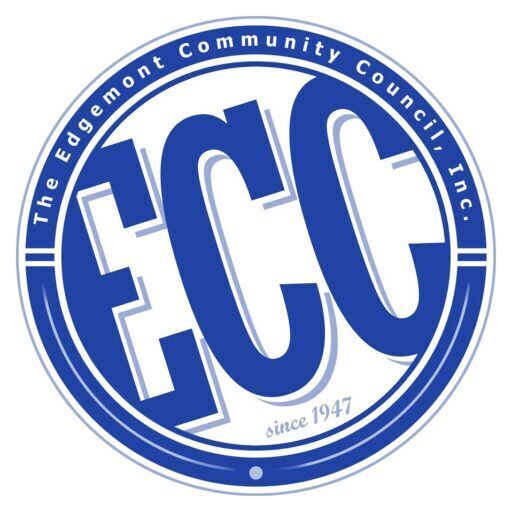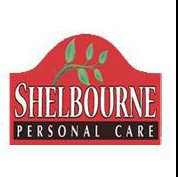 Town Supervisor Paul Feiner today asked Edgemont residents to contact him personally if they want to have private pre-application meetings in their homes with a private developer that is looking to construct an 85-98 bed assisted living facility on the 3.79-acre site of the Sprainbrook Nursery property at the corner of Underhill and Sprain Road in Edgemont.
Town Supervisor Paul Feiner today asked Edgemont residents to contact him personally if they want to have private pre-application meetings in their homes with a private developer that is looking to construct an 85-98 bed assisted living facility on the 3.79-acre site of the Sprainbrook Nursery property at the corner of Underhill and Sprain Road in Edgemont.
Mr. Feiner had earlier reached out to Edgemont civic groups to see if he could set up such meetings with them, but they turned him down, preferring to wait for the developer’s application to be filed so that they could study what was actually being proposed, poll their members, and respond on their behalf at the appropriate time on the public record.
Mr. Feiner was criticized at the last town board meeting for involving himself personally in certain applications by developers because his involvement often creates the appearance that he is shilling for the developer, when he will later be asked to vote on that same developer’s application.
Mr. Feiner brushed off the criticism last week, saying he would do as he pleased.
Mr. Feiner’s email claimed that the proposal, if approved, would generate between $500,000-$600,000 in new taxes — more than half of which, he said, would go to the Edgemont School District. He also attached to his email a testimonial from a resident thanking him for his prior support of an assisted living facility located on Benedict Avenue near Tarrytown.
Mr. Feiner denied, however, that he was promoting the developer’s application, claiming that he is merely looking instead to set up meetings with residents and the developer to get their questions answered before the developer’s application is filed.
Mr. Feiner’s email notwithstanding, there is nothing in the town code calling for any pre-application meetings between town officials, applicants and residents. Once an application is filed, applicants are required by law to give legal notice to all residents who live nearby so that they may participate in public hearings to address the various approvals being sought.
Omitted from Mr. Feiner’s email today was any discussion of the specific issues raised by the application.
Under Greenburgh’s zoning code, the property in question is zoned R-30, which means it is legally zoned right now only for homes on 3/4 acre lots. Assisted living facilities are not permitted at that location, which means the applicant will need to obtain a change in the zoning, which only the Town Board has the right to approve.
Mr. Feiner did not mention it, but the Town recently created an “assisted living overlay” zone to allow assisted living facilities to be built on any four-acre site zoned residential within 200 feet of any state or county road. Mr. Feiner did not tell Edgemont residents that the Sprainbrook site doesn’t meet the minimum four acres required; nor is it within 200 feet of a state or county road.
The reason that may make a difference is that assisted living facilities are businesses that generate a substantial amount of truck traffic to deliver food and medical supplies on a regular basis, but more importantly, their clientele tend to require a lot more rescue services than the population at large — and having immediate access to a county or state road is critical to making sure rescue services can get there in a timely manner.
Whether a change in the law to allow an assisted living facility at that site makes sense may turn on whether the Greenville Fire District, which is usually the first responder on rescue calls in Edgemont, foresees any problem in having to serve an assisted living facility with as many as 98 beds in that part of Edgemont. And one thing is for sure, if they can handle it, there may be substantial costs.
Mr. Feiner nevertheless argues that the facility, if built, will generate substantial property taxes. However, Edgemont residents will want to consider whether an assisted living facility at that location is the best use for the property.
With a lot size of 3.79 acres, it is likely that if acquired by a single family housing developer, there could be as many as four homes built there and, given what’s been built nearby on Underhill, near Vandalay Court, for example, these new homes would probably be luxury homes selling for $1.5 million or more.
Mr. Feiner argues that the assisted living facility may be a better use of the property than private family homes because it will generate at least $500,000 to $600,000 a year in taxes, with no additional burden on the school district.
But Mr. Feiner nowhere explains how he arrived at his property tax estimate — the construction cost would have to be quite high to generate a property tax as high as he estimates, but even if his estimate is correct, because the facility would be a commercial entity, unlike residential properties, it would still be entitled to file tax certiorari claims which could reduce the tax benefit generated. And it is unlikely that construction of four luxury homes at the site would significantly add to the Edgemont school population.
There is also a risk that assisted living facilities in New York may become tax exempt, which means Edgemont’s tax revenues from the facility might disappear altogether. The reason is that assisted living facilities, like the one proposed, are very expensive and residents who live there sometimes end up living longer and running out of money; when living in a nursing home, a resident in such situation applies for Medicaid and doesn’t have to move; but assisted living facilities do not generally accept Medicaid — and when their elderly tenants run out of funds, they are evicted, sometimes with no place else to go.
The State of New York doesn’t like that much, which is why there is a movement in the legislature to try to encourage those facilities to accept Medicaid by relieving them of property taxes if they do.
On the other hand, if four luxury homes were built instead, the question is how much tax revenue would be generated and how many children would have to be educated. Luxury homes are not subject to tax cert proceedings, which make them about as stable as tax ratable as there is.
Mr. Feiner’s email, which suggests that the application will be approved or rejected depending upon the applicant’s willingness to meet certain conditions, nowhere addresses the issue of whether an assisted living facility is an appropriate use for that site.
Also notably absent from his email is any discussion of the reasons why the Town Board chose to limit the “assisted living overlay” zone to minimum four-acre sites within 200 feet of state or county roads in the first place. Nor is there any mention of the Town’s upcoming Comprehensive Plan and whether it calls for “assisted living facilities” in locations such as this.
By bypassing Edgemont’s civic groups that may be more interested in the proposal’s impact on Edgemont as a whole, and the precedent that town board approval may create, Mr. Feiner seems more interested with this email to be looking for individual Edgemont residents who may be impacted by the proposal to contact him personally.
His thinking may be that if he can get the developer to address their concerns, these residents can then be persuaded to support the project once the application is filed, and public hearings begin — without regard to what Edgemont’s civic groups may conclude.

